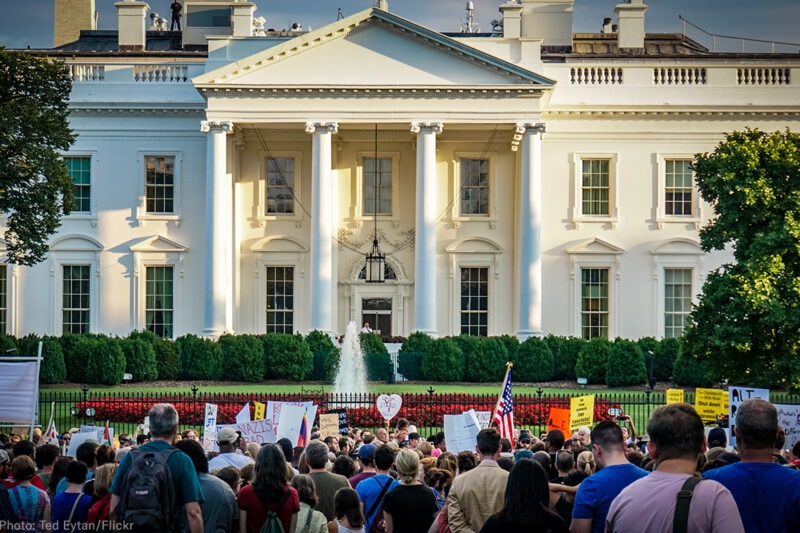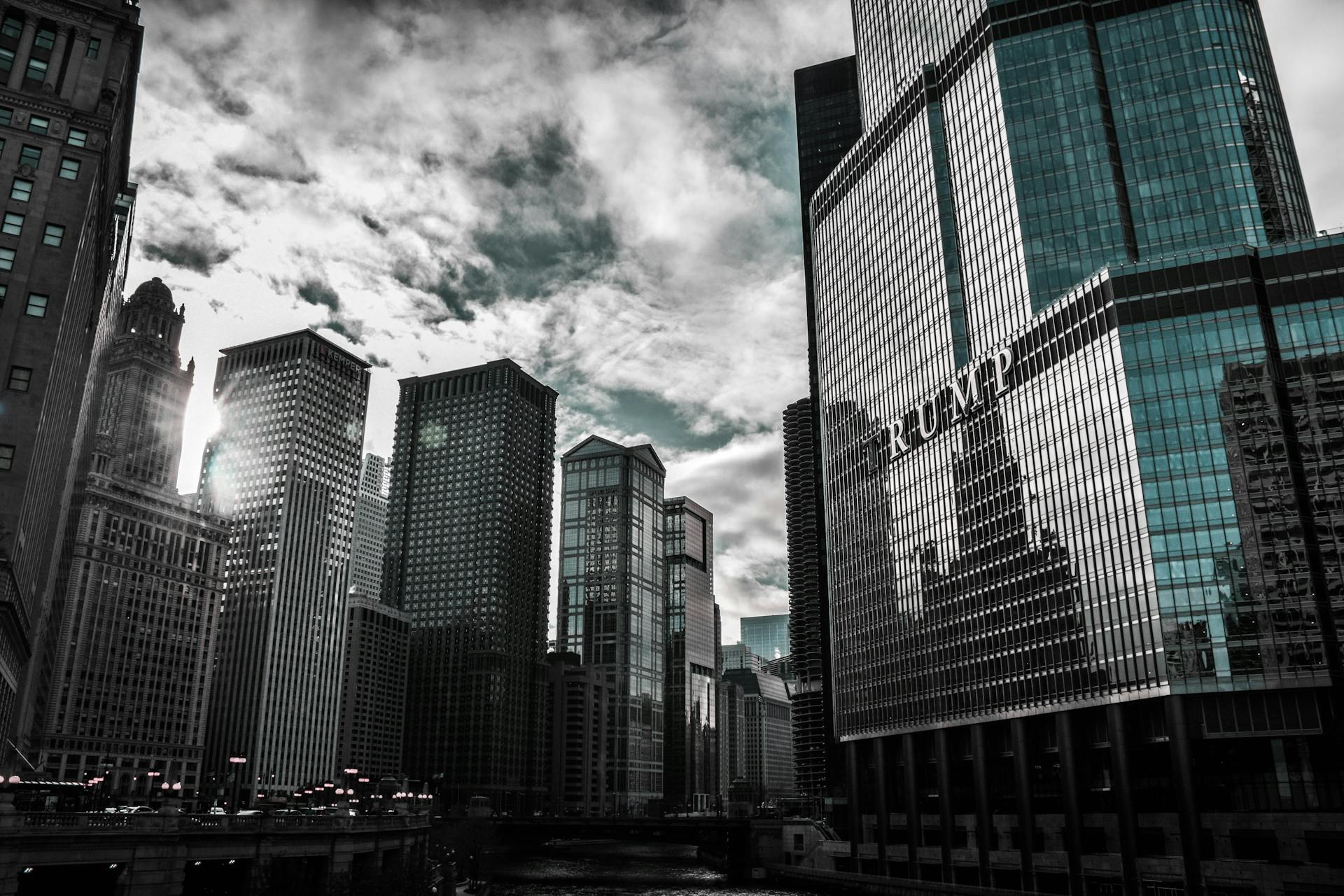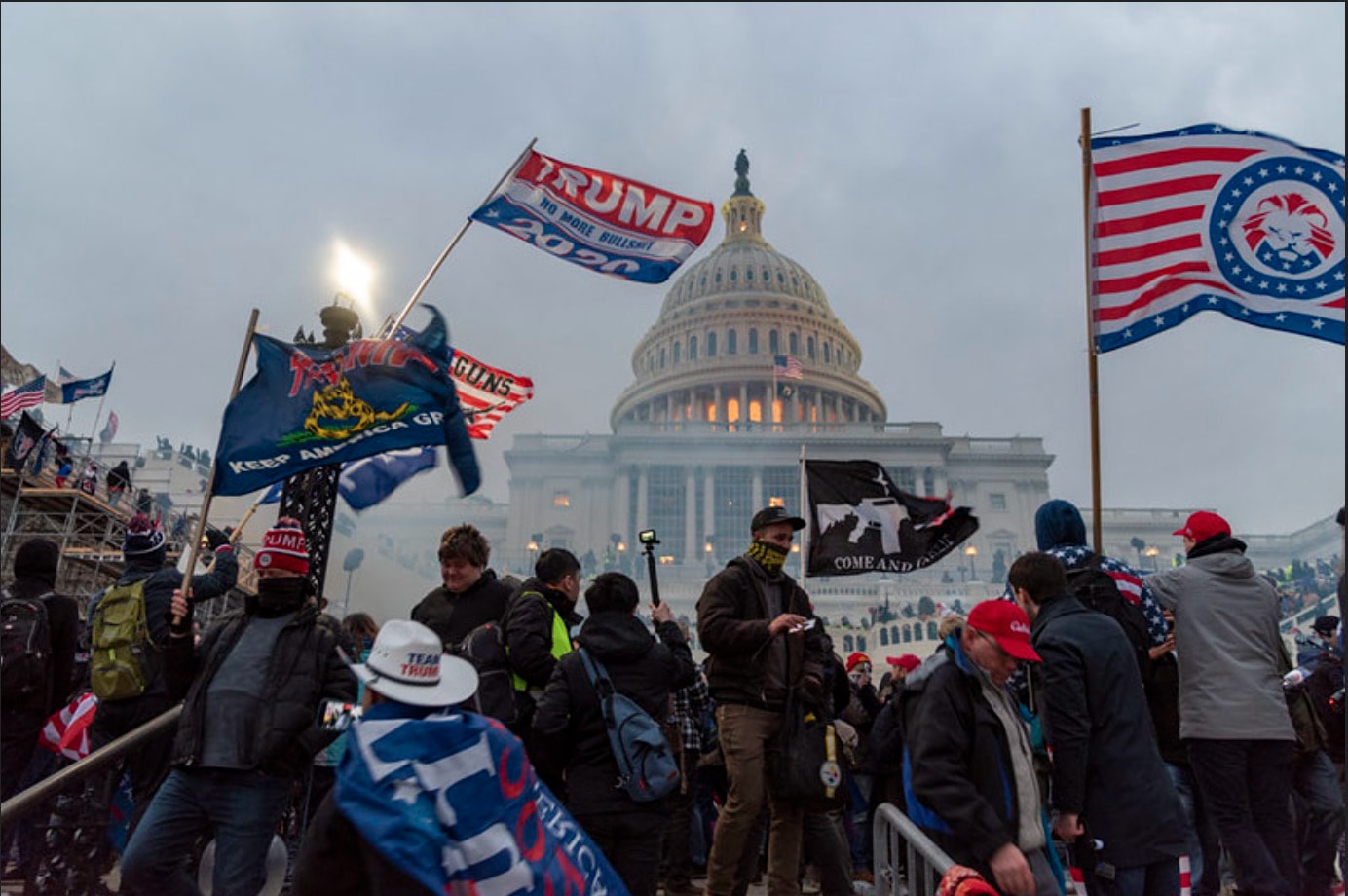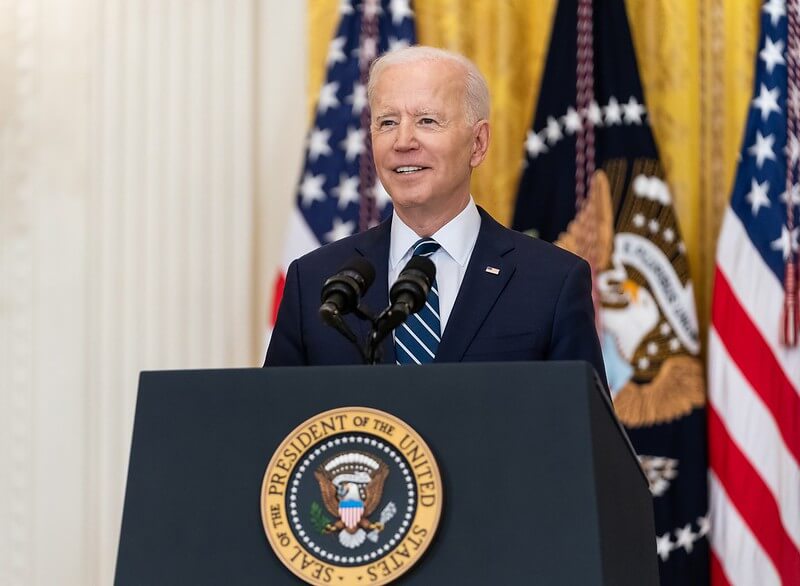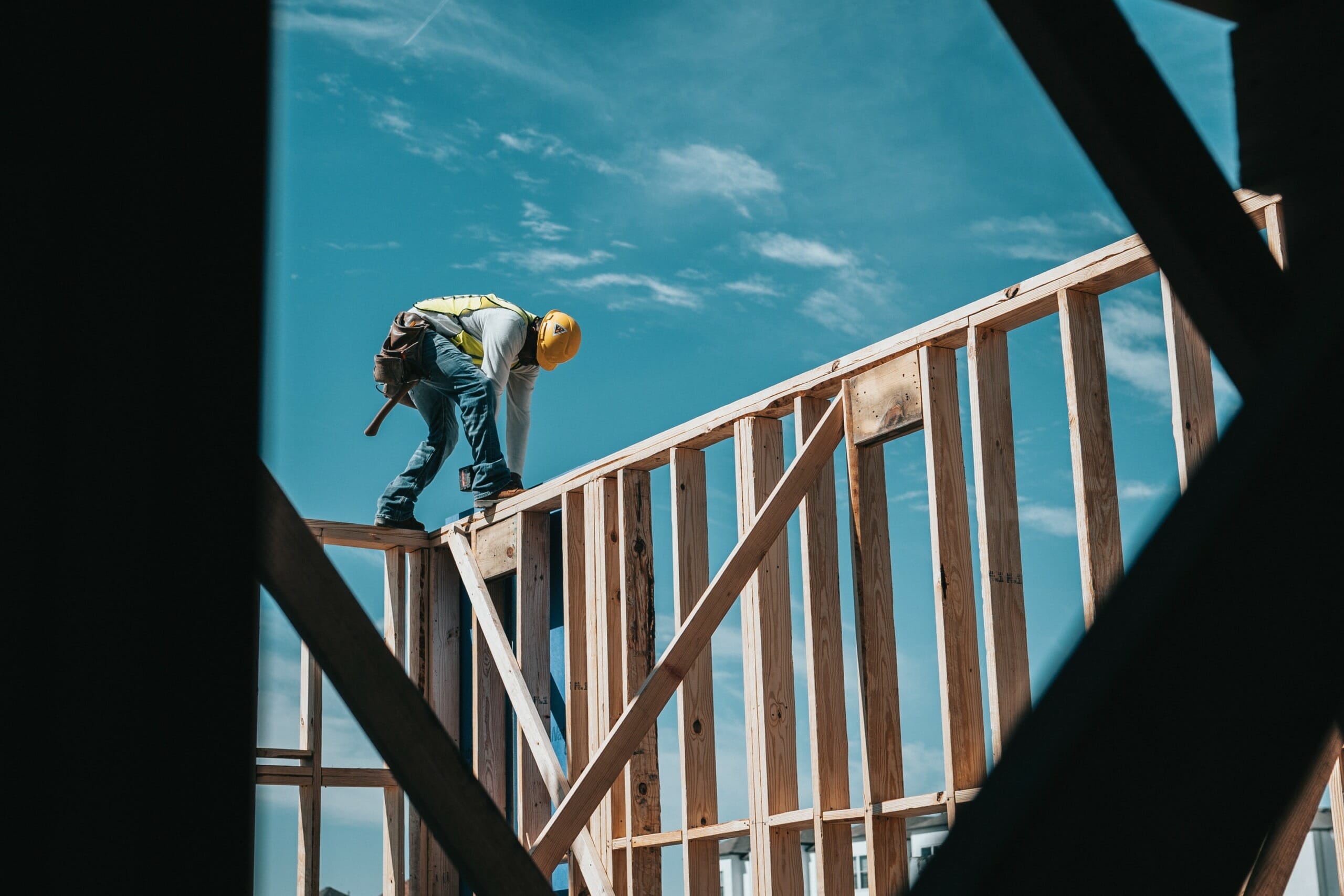January 6, 2021 was a day that should live long in the American conscience. Spurred on by months of misinformation and baseless theories that the 2020 election was stolen, supporters of then-President Donald Trump stormed the Capitol building as Congress-members were ratifying Joe Biden’s victory.
At least five people died during or after the riot, over 130 police officers were injured, and more than 700 have since been arrested. In a recent step-up to the consequences of that day, eleven individuals have also been charged by the FBI with ‘seditious conspiracy’, alleging that they intended to “oppose by force the execution of the laws governing the transfer of presidential power” – according to a press release from the US Justice Department on January 13.
Yet, a year on from one of American democracy’s darkest days, a troubling dynamic has emerged. Elected officials deny what they saw with their own eyes, downplaying the melee and refusing to acknowledge the unfounded incitement that led to it. One House Republican even described the mob as a “normal tourist visit.”
As can be seen from this video below (be advised, it’s not pretty), it was hardly a “tourist visit”:
Warning: Graphic video of violent assault on officers at the U.S. Capitol entrance pic.twitter.com/AwNQkgQ1dD
— John Kruzel (@johnkruzel) January 10, 2021
However, whilst such a fateful day should have been burned into the national memory and afforded lessons in abundance, the fractured state of the US political landscape may well result in January 6 falling into insignificance. There was a time that the march on the Capitol building was thought of as electorally devastating for the GOP; now, poll after poll shows that Trump retains strong support among his voter base, and the de-facto 2024 Republican nominee seems to have the large majority of his party in line.
After an up-and-down first year of the Biden presidency, there is a sense that there are plenty of distractions to hide behind, and there isn’t much to stop Republicans from merely avoiding the topic right now.
The Biden Presidency, one year after January 6, is in free fall not because of the attack on our Capitol, but because of failed policies and weak leadership.
— Lindsey Graham (@LindseyGrahamSC) January 6, 2022
For evidence of this, look no farther than last week. Whilst President Biden and members of the Democratic Party marked the one year anniversary of the Capitol breach, the GOP was notably MIA. When the House chamber held a moment of silent remembrance, the only Republicans in attendance were House Rep. Liz Cheney and her father, former Vice-President Dick Cheney.
These rifts run far deeper than partisan Washington infighting. A chasm has formed between how voters on either side of the aisle perceive the insurrection, one that casts doubt over the true impact that it may have going forward. According to a recent Washington Post/ University of Maryland poll, whilst 78% of Democrats describe the January 6 mob as ‘mostly violent’, just 26% of Republicans agree. Furthermore, despite 92% of Democrats believing Trump bears ‘a great deal’ of blame for the insurrection, just 27% of Republicans feel the same way.
Related Articles: How Abortion Could Shape the US Midterms | Biden’s Make-Or-Break Moment | Biden Uses Hurricane Ida Visits to Boost Infrastructure Agenda | American Democracy at Risk: Three Retired Army Generals Sound the Alarm
Galvanised by either a steadfast belief that the 2020 election was stolen and President Biden was fraudulently elected, or an anxiety that Republican backlash could see future electors defy official results or inflame an increasingly dangerous base, a majority of Americans (64%) now believe that their nation’s democracy is “in crisis and at risk of failing” – according to a recent NPR/ Ipsos poll.
Whichever way you feel about the events of January 6, 2021, and US democracy more generally, the only thing that is easy to agree with is that, by and large, millions of Americans do not exactly see eye to eye.
What Can The ‘Jan 6 Committee’ Tell Us?
By July, 2021, seven months on from the ‘Stop The Steal’ march, Congress voted to set up a committee to investigate not only what happened on the day, but what led to it. Tellingly, a bill to establish the commission failed in the Senate in May thanks to opposition from GOP Senators, and the House vote received support from just two Republicans – Adam Kinzinger and Liz Cheney. To get a sense of where this saga may be headed, let’s look to this committee.
So far, after hearing from over 300 witnesses, issuing more than 50 subpoenas, and receiving upwards of 30,000 records, the investigation has revealed some uncomfortable truths. From text messages obtained through former White House Chief of Staff Mark Meadows that showed members of the first family and prominent conservatives begging Trump to call off the mob, to an alleged PowerPoint presentation recommending a national emergency declaration in a hail-mary bid to upend the election result, it is no wonder that the former president is attempting to shield his White House records through the Supreme Court.
It is important to note that whilst the committee was essentially created to determine a definitive and accurate account of the riot and its motives to avoid a repeated catastrophe in the future, the investigation could also send criminal referrals to the Justice Department if it uncovers evidence of illegality. Such referrals do not hold any legal credence, but would undoubtedly lead to a wave of scrutiny and political pressure around Washington.
Predictably, ever since its conception, the Congressional investigation has been met with resistance from a Republican party that is still very much controlled by the spectre of Trump. House Rep. Jim Jordan told the committee last week he will not cooperate with their interview request, mirroring the response from the only other lawmaker to receive the same call from the investigation, Congressman Scott Perry. Other notable individuals that have defied the committee include former Trump advisor Steve Bannon, who has been charged with contempt of Congress, and Meadows, who was recommended in a House vote in December to receive the same punishment.
This brings us to the importance of this November’s midterm elections, a common theme in current Washington political discourse. Fundamentally, if Republicans regain control, they can determine the committee’s future. For a party that has even had members joke, or not, about giving Trump the House Speaker’s gavel in 2023, the approach it would take to investigating the Republican king-maker is hardly a matter of speculation.
Certainly, there have been consequences to the mob itself. Yet, in the face of the hundreds of subsequent arrests, the fate of the Congressional examination into what truly happened on January 6, 2021 may be left in the hands of those whose priorities lie in turning the page on the riot rather than keep it in the public and legislative spotlight.
The Select Committee is continuing to gather facts about the violence of January 6th and its causes.
If you have information you want to share with us, submit it to our tip line: https://t.co/N2ID3r0QsY
— January 6th Committee (@January6thCmte) January 12, 2022
Nevertheless, the outlook for the committee is not entirely bleak. Its actions so far have been carried out mostly behind closed doors, but public hearings are being planned in the months ahead. With a plethora of individuals whose potential testimonies would surely catalyse a media circus, the events of January 6, 2021 could be thrust back into the limelight just as the midterm election cycle is gearing up.
Amid an uncertain future, the committee is also planning on releasing its interim report on the deadly march in the summer of this year, and will aim to present a final report just ahead of the critical midterm elections in the autumn – according to reporting from Reuters.
Whether these reports will shake the fabric of the nation’s judgement, or flitter away without leaving a mark on the elections at all, remains to be seen. If you are a Democrat, you will surely be hoping for the former.
Traditionally, the president’s party fares poorly in midterms. According to Gallup, a president with a level of approval below 50% loses on average 37 House seats, making Biden’s meek 42% rating ominous for the Democrat’s 9 member majority. Compounded by the Senate’s current 50-50 tie, only controlled by VP Kamala Harris’ tiebreaker vote, history is not on the liberal side.
With tangible factors like the omnipresent COVID-19 pandemic and its continued impact on the US economy, to Biden’s currently untenable domestic infrastructure agenda, likely to further influence the midterms, there is reason to be concerned over the fate of the January 6 investigation.
Now, with just over nine months to go, control of Washington is still up for grabs. But whilst the insurrection was once seen as an implicitly dominant issue in the American political landscape, its position may have slipped already. In all, beneath accusations that revealing political turmoil is somehow ‘politicised’, or that the riot is in the same category as 9/11 or Pearl Harbour, there must be some that are hoping that this ends with the honest truth of what happened.
At the very least, one can hope that the committee will produce some fireworks in the coming months and shed light on what caused that consequential day.
Editor’s Note: The opinions expressed here by Impakter.com columnists are their own, not those of Impakter.com. — In the Featured Photo: Capitol Building, Washington, DC. Featured Photo Credit: Geoff Livingston, Flickr



